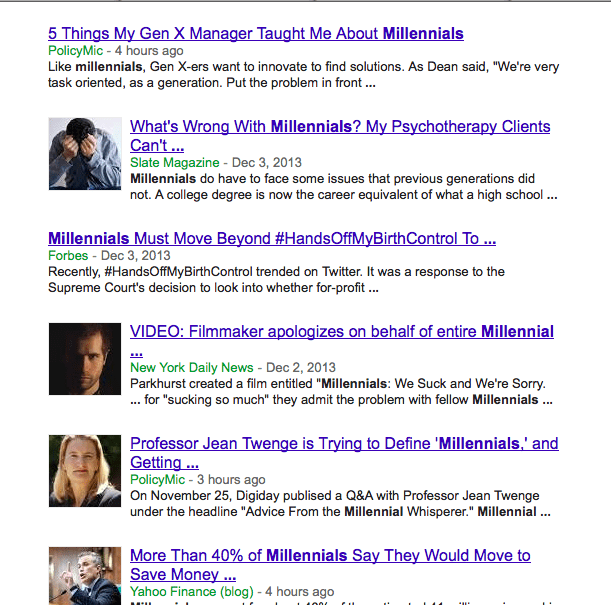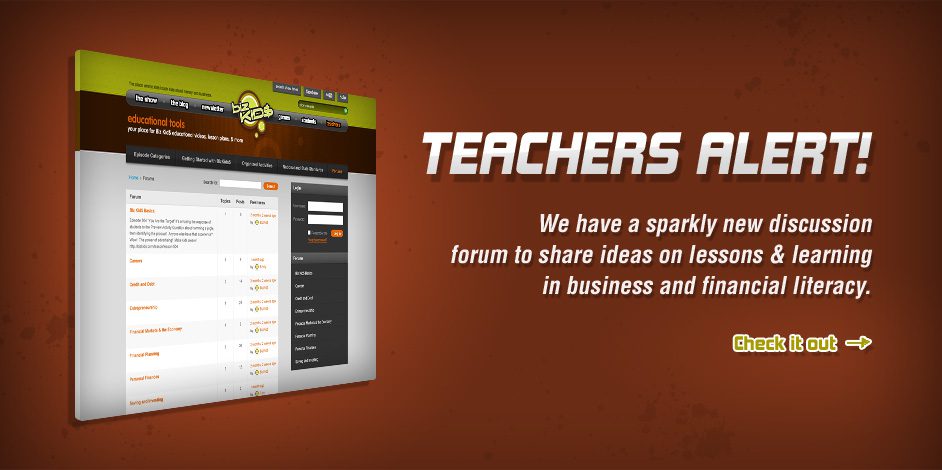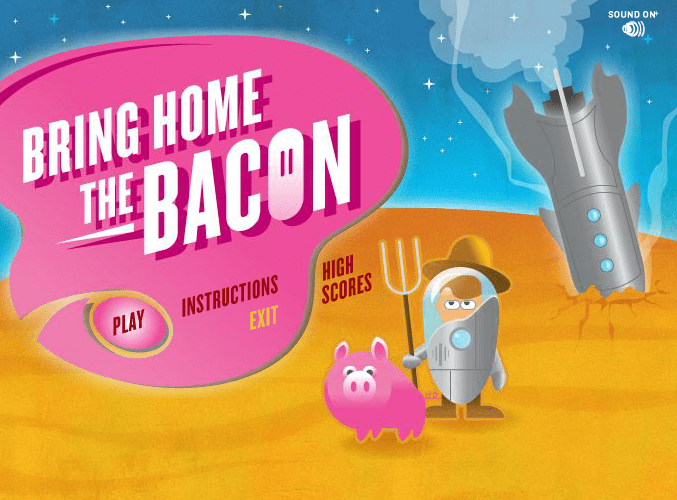If I had a nickel for every article, blog post, or news segment I’ve seen about my generation this year, I think I would get close to the GDP of China.
“What drives Millennials”
“15 Traits of Millennials”
“Why Millennials are Amazing”
“Why Millennials are Terrible”
“Millennials and the End of Time”
 Everyone seems to have an opinion, and everyone seems to want to talk about and read about what this latest generation to enter the workforce is defined by, inspired by, turned off by, etc.
Everyone seems to have an opinion, and everyone seems to want to talk about and read about what this latest generation to enter the workforce is defined by, inspired by, turned off by, etc.
The (only) truly interesting article I’ve read on this topic explained that the idea of a generation being driven by purpose, and therefore having what is perceived as a sense of entitlement, is nothing new.
When you look at surveys of all of today’s generations, you would think that we’re alone in this purpose driven mindset. But come to find out, that very mindset has been true of generation after generation, at a certain age. It turns out we are more affected by our age than anything else. Everyone else has been there too, wanting to do something that will change the world, and having a difficult time adjusting to the more routine tasks that accompany a “normal” job. Apparently that desire gives way to the realities of life after a few years. (Bummer, I know.)
The concern of most people is not that we are driven by purpose, but is that we are too prideful to work hard when it’s required. We’d rather become “slacktivists” on social media that become hard workers on the ground. We see routine tasks as the enemy of purpose, when often, it’s the routine tasks that make things happen. It’s the little things that add up to the big things that change the world.
Most articles you read on this topic discuss it with a good amount of fear. (What will happen to our future?!) But let me offer a more optimistic perspective for all of you Biz Kids. Scarcity always makes things more valuable. Scarcity of resources, whether tangible or not. So what does that mean for work ethic, ingenuity, and humility? Their value will rise as they become scarcer. If you are the Biz Kid I think you probably are, you could not have been born at a better time. Having the same amount of work ethic, diligence, and humility as your grandparents is ten times more valuable today than it was if you were born 60 years ago because of its scarcity. If you can resist the temptation to join some of the other people your age in their apathy and pride, you can achieve more than I believe you could have in years gone by. The reality is, it’s not that hard to stand out anymore. Lucky you!
So what’s the lesson here? The next time you see an article on Millienials, read it and do what you can to patch the holes the author is poking in our generation. You will stand out as a result. And who knows, maybe you really will be able to change the world after all.
















 Our friends at
Our friends at 












